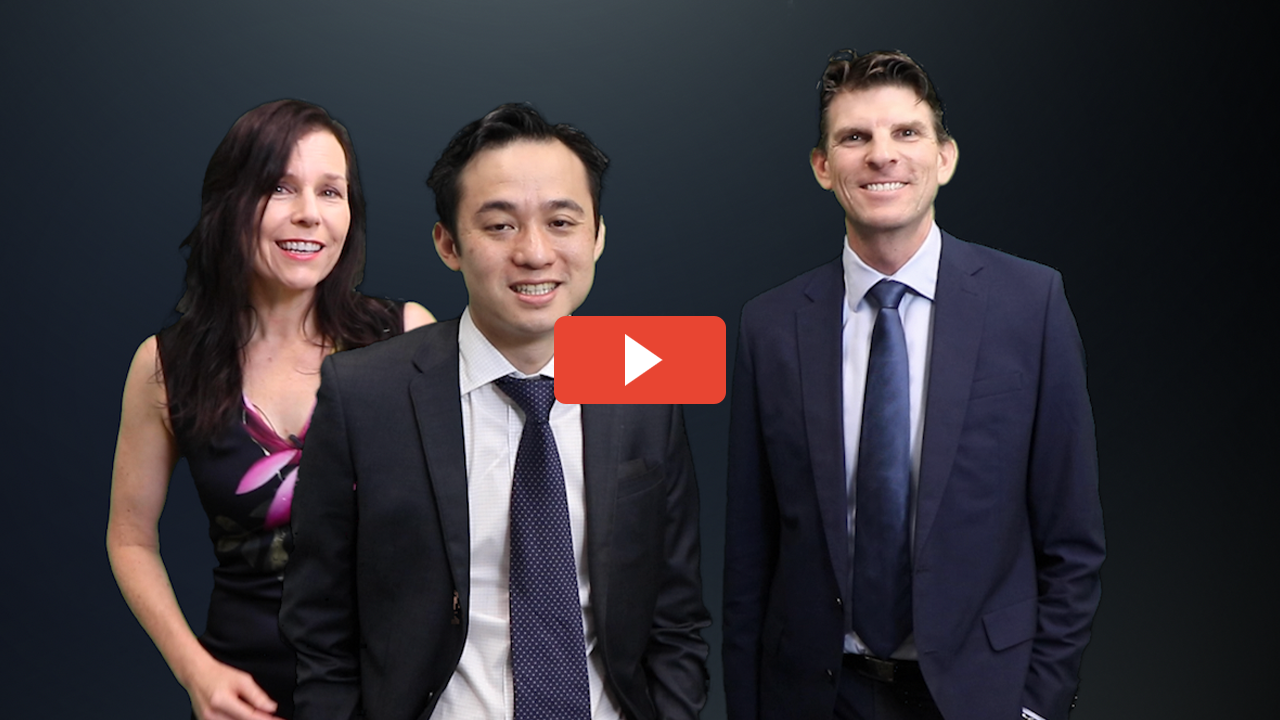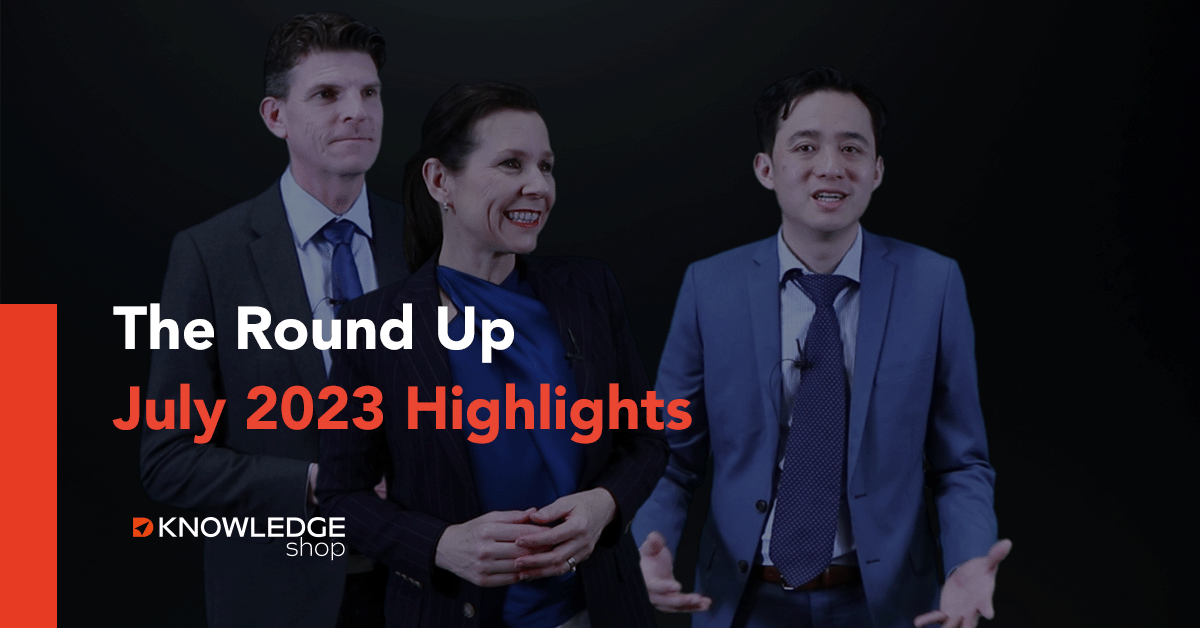Oct 2023 Round Up - Unpaid trust distributions are not Division 7A loans?
In Bendel and Commissioner of Taxation [2023] AATA 3074 the taxpayer successfully challenged the ATO’s long held position that unpaid distributions owed to a private company can be treated as a loan for Division 7A purposes. While the case was a win for the taxpayer, the ATO is contesting the decision before the Federal Court. We look at the issues and implications.
Change is a constant for the profession. The Knowledge Shop membership can help you and your team keep ahead of change with an advisers' help desk, workpaper knowledge base, quarterly PD, and more - wherever you are and however you are working. Book in a time for a tour or call the Knowledge Shop team on 1300 378 950.
Inside this month Michael Carruthers (Tax Director), Jason Hurst (Technical Superannuation Adviser) and Lisa Armstrong (MD) bring you:
Unpaid trust distributions are not Division 7A loans?
In Bendel and Commissioner of Taxation [2023] AATA 3074 the taxpayer successfully challenged the ATO’s long held position that unpaid distributions owed to a private company can be treated as a loan for Division 7A purposes. While the case was a win for the taxpayer, the ATO is contesting the decision before the Federal Court.
The ATO’s position since December 2009 is that an unpaid trust distribution owed to a private company beneficiary can be treated as a loan, that attracts the operation of Division 7A.
The definition of a loan in section 109D(3) ITAA36 specifically includes financial accommodation. When a corporate beneficiary fails to call for the payment of its trust distribution and allows the trustee to use these funds, the ATO’s view is that this amounts to the provision of financial accommodation and therefore, the company has provided a loan to the trust for Division 7A purposes.
This view was originally set out in TR 2010/3. More recently, this ruling has been withdrawn and was replaced with TD 2022/11, but the ATO’s approach on this key issue has basically remained the same.
While this has been the ATO’s view since 16 December 2009, a recent AAT decision in Bendel and Commissioner of Taxation [2023] AATA 3074 challenges the ATO’s position.
Very briefly, the AAT case dealt with a private company which was a discretionary beneficiary of a trust that became entitled to a share of the trust’s income between the 2013 to 2017 income years. Some of those trust entitlements remained unpaid by the lodgement day of the year after the trust entitlements arose.
The ATO assessed those unpaid trust entitlements as loans under section 109D(3) ITAA36, with the result that this triggered assessable Division 7A deemed dividends.
The taxpayer decided to challenge the ATO’s view and took the matter to the AAT. The AAT disagreed with the ATO’s position and came to the decision that a Division 7A loan does not extend to unpaid trust entitlements owed to a private company beneficiary.
One of AAT’s primary concerns was that if the unpaid trust entitlement was considered a Division 7A loan, this could lead to the situation of two taxpayers being taxed on the same unpaid trust entitlement. The first taxing point arising from the initial receipt of the trust distribution under the trust distribution rules in Division 6 ITAA36, with the second taxing point as an assessable deemed dividend through the Division 7A rules if the unpaid trust entitlement was subsequently considered to be a Division 7A loan.
Also, the AAT considered that treating an unpaid trust entitlement as a Division 7A loan would be inconsistent with the operation of Subdivision EA. This was because the AAT considered Subdivision EA to be the lead specific provision dealing with unpaid trust entitlements and wasn’t intended to create a second deemed dividend.
In broad terms, Subdivision EA can apply to trigger a deemed unfranked dividend in situations where:
- A trustee makes a loan to a shareholder or an associate or a shareholder of a private company; and
- There is an unpaid trust entitlement owing to the private company from the relevant trust.
This AAT decision challenges an important ATO position, with the tax outcomes being potentially significant for trust clients that currently owe (or may have owed in the past) unpaid trust entitlements to related private companies.
But this is not the end of this story. On 26 October 2023, the Commissioner lodged a notice of appeal to the Federal Court. There is no guarantee that the Federal Court will reach the same conclusion as the AAT. We will need to wait and see.
=Follow Knowledge Shop on Twitter, linkedin and Facebook and we’ll keep you up to speed with any changes as they emerge.
Can accountants do the tax work for their own SMSF under the incoming NALI rules?
Treasury Laws Amendment (Support for Small Business and Charities and Other Measures) Bill 2023 amends the rules around non-arm’s length expenses of superannuation funds (excluding large APRA-regulated funds, exempt public sector superannuation funds, PSTs and ADFs) - see The New Expense Rules for Super Funds blog for full details.
One question we are asked a lot about on the Knowledge Shop help desk is, can accountants in practice do the accounting work for their own SMSFs? A similar issue applies to any professional supplying services that are general expenses of the fund.
The answer? We'll you will just have to listen to what Jason says in the update!
Is there a work around to the 30% tax on super earnings on balances above $3 million?
We look at the exposure draft legislation legislation to enact the tax on super earnings and deliver a practical run through of how the tax will apply, and the issues for those impacted.
Unfortunately, there is no magic bullet and ensuring clients are in the best possible scenario will be based on a case-by-case scenario. Jason Hurst walks through the considerations for:
- Pre-retirees
- Retirees
- When to consider other structures
- The role of insurance bonds
- Understanding liquidity issues
Share this
You May Also Like
These Related Stories

Q&A Div 7A when a company lends working capital to a unit trust

Feb 2022 Tax Round Up - The ATOs attack on trust and trust distributions


No Comments Yet
Let us know what you think